The efforts are part of a plan for a larger regional redesign.
The efforts are part of a plan for a larger regional redesign.
By Azar Mahdavan, from Tehran / Iran
Israel believes that, following the martyrdom of Sayyed Hassan Nasrallah and the latest developments in the region, it has found the perfect opportunity to deal a final blow to the heart of the Resistance. Under these circumstances, the US, and some Western governments exert an unprecedented pressure on the Lebanese government to disarm Hezbollah. Recently, the US has sent its special envoy Thomas Barrack to Beirut for presenting their “political and security conditions”.
The Lebanese government’s decision to disarm Hezbollah came after these “conditions”. Alongside the government, some powerful political figures in Lebanon seem to accept these conditions.
We raised these issues in our interview with Dr. Mohammad Hajouyi, Director of the Lebanon Research Group at the Iranian Institute for Strategic Studies of West Asia.
—————————————————————————————————————————————–
Political changes in Lebanon after the last Israel–Lebanon war
Hezbollah represents a significant segment of Lebanese society and has a key position in ensuring the country’s security. Militarily speaking, it has always been stronger than the Lebanese army. Given that the Zionist regime continues to occupy parts of Lebanese territory, violate its airspace daily, and issue military threats, what does it mean to talk about disarming the resistance? And why are the Lebanese government and Nawwaf Salam so insistent on this American plan?
The Lebanese government’s recent decision to disarm Hezbollah is essentially the result of American pressure and a reflection of the political changes that emerged in Lebanon after the recent Israel–Lebanon war. For years, Hezbollah had been holding de facto veto power over Lebanon’s politics and security, but it suffered heavy losses in last year’s war.
The assassinations of key leaders such as Sayyed Hassan Nasrallah, Sayyed Hashem Safieddine, and Ibrahim Aqil have weakened Hezbollah also on the political stage.
Joseph Aoun: Washington’s favored candidate
Following the Israel–Hezbollah war, Joseph Aoun, Washington’s favored candidate, was elected president under strong pressure from then-US envoy Amos Hochstein. Soon after, Nawwaf Salam formed his government. These figures have since pursued a specific mission: most importantly, Hezbollah’s disarmament. This mission is part of a wider project by the US and Israel to reshape the regional order.
The roots of this project go back about two years, with Israel’s efforts backed by the US to weaken the axis of resistance following the operation on October 7. Lebanon is especially important for Israel and the US because Hezbollah, the best-organized and most effective resistance group, is viewed as the closest and most direct threat to Israel. Despite the damage it suffered in the war, Israel sees the Hezbollah issue still unfinished.
Part of a larger regional redesign
This is why, after the ceasefire, Israel has continued to strike Hezbollah positions in Lebanon. In parallel, the US has pressured political groups in Lebanon to advance and complete the disarmament project. These should be read as a part of a larger regional redesign, alongside efforts such as dismantling Iraq’s Hashd al-Shaabi or military action against Iran.
Lebanon has always been a political arena where various groups enjoy external backing. Many Lebanese groups opposed to Hezbollah have seized the current moment to pursue their long-standing goal of weakening the movement, increasing their own leverage and aligning themselves with US and Israeli objectives.
As you noted, Hezbollah is a key part of Lebanon’s social and cultural fabric, and supported by a remarkable section of the society. Given Hezbollah leader Sheikh Naim Qassem’s reaction to these developments and his warning about internal crisis, will the disarmament actually take place? And if it does, would it trigger a domestic crisis in Lebanon?
Back to the era of civil wars?
If the Lebanese government pushes ahead with its decision and orders the army to disarm Hezbollah by the end of the year, it could spark a major internal conflict, since Hezbollah categorically rejects such a plan. That might mean a return to Lebanon’s era of civil wars. However, I consider this scenario highly unlikely under current conditions.
There is indeed anxiety about civil war in Lebanon. But the greater concern is that the US and Israel are actively trying to provoke that. US’s special envoy Thomas Barrack’s proposal rests on the idea that Israel must withdraw from southern Lebanon and cease its aggressions.
Yet there are serious doubts about whether Israel would comply. Israel’s project, at its core, is expansionist and has never accepted limits. Looking at Israel’s actions in Syria and Gaza and Netanyahu’s recent remarks about “Greater Israel,” it is difficult to believe that Israel will honor such commitments.
Three scenarios for the coming period
The first scenario, direct clashes between the army and Hezbollah in the coming months, seems unlikely. The second scenario is the continuation of the current fragile status quo: Israel keeps up its aggressions and occupations, while Hezbollah remains armed but under mounting political pressure. This fragile balance is the most likely outcome for now.
A third scenario, the most desirable one, would be the launch of a national dialogue to resolve the issue, similar to previous models like the Taif Agreement or the Doha Agreement. This would be the best path to prevent further escalation in Lebanon, but at the same time very unlikely. The main obstacle is US and Israeli pressure. This disrupts the internal balance and fuels tensions.
Another possible scenario is that, as the deadlock over the issue drags on, Israel intensifies its attacks on Lebanon, while takfiri groups escalate destabilizing activities from Syria into Lebanon. These external pressures would be designed to further weaken Hezbollah and keep Lebanon’s Shia community under pressure with operations. We should keep in mind that the current reality in Lebanon is the outcome of Hezbollah’s weakened state after the recent war. Different factions in Lebanon know very well that the disarmament project is being pushed forward by US and Israeli pressure.
The ultimate aim: Iran
Lebanon has always been central to regional dynamics, and it plays a decisive role in Iran’s broader strategy. What would Hezbollah’s possible disarmament mean for Iran, and how do you assess Iran’s position?
Iran is following developments with deep concern. The first issue taken up by Ali Larijani after assuming his office as head of Iran’s Supreme National Security Council was the developments in Iraq and Lebanon. His visits to both countries show how critical and urgent these issues are for Tehran.
In Iraq, the US is pressuring for the dismantling of Hashd al-Shaabi, Iran’s ally.
For Iran, Hezbollah is even more important because it is Tehran’s closest ally within the axis of resistance, bound by strong strategic and ideological ties. Given Hezbollah’s geographical proximity to Israel, its very existence is essential for Iran in maintaining a balance against Israel.
Iran sees the latest developments as part of a broader project to weaken the resistance front and reshape the region. That is why Tehran is determined to resist this plan at all costs. Larijani’s warnings in Lebanon underscore how critical the issue is for Iran. Despite logistical constraints and the difficulties of supplying support through Syria, Iran continues to declare its backing for Hezbollah and to mark its red lines.
Iran also believes that if this project succeeds, namely if Hezbollah is disarmed, Hashd al-Shaabi dismantled, and other resistance forces weakened, Israel will become more willing and determined to attack Iran again. Weakening Iran’s allies naturally would make Iran itself more vulnerable. The ultimate aim of this project to reshape the region is to weaken Iran.







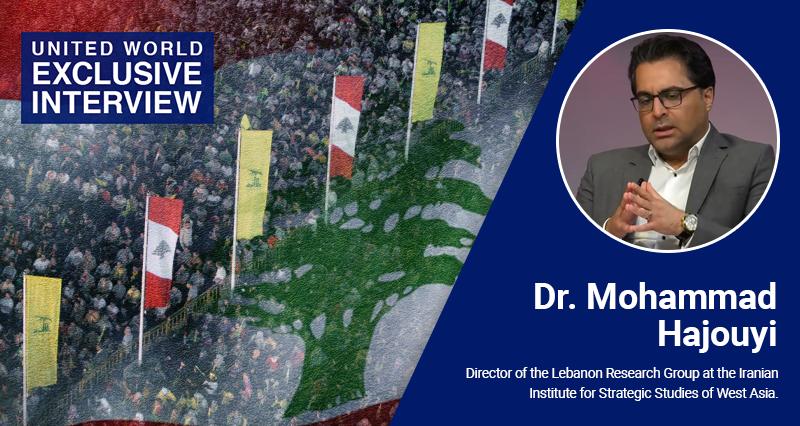

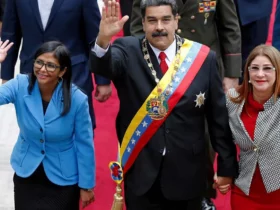
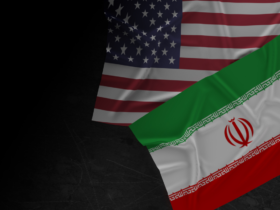
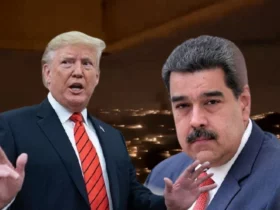
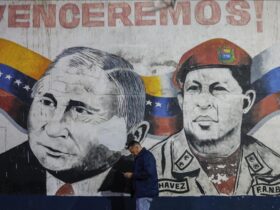


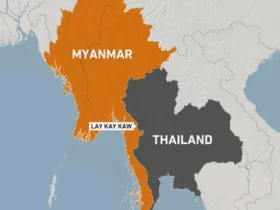

Leave a Reply